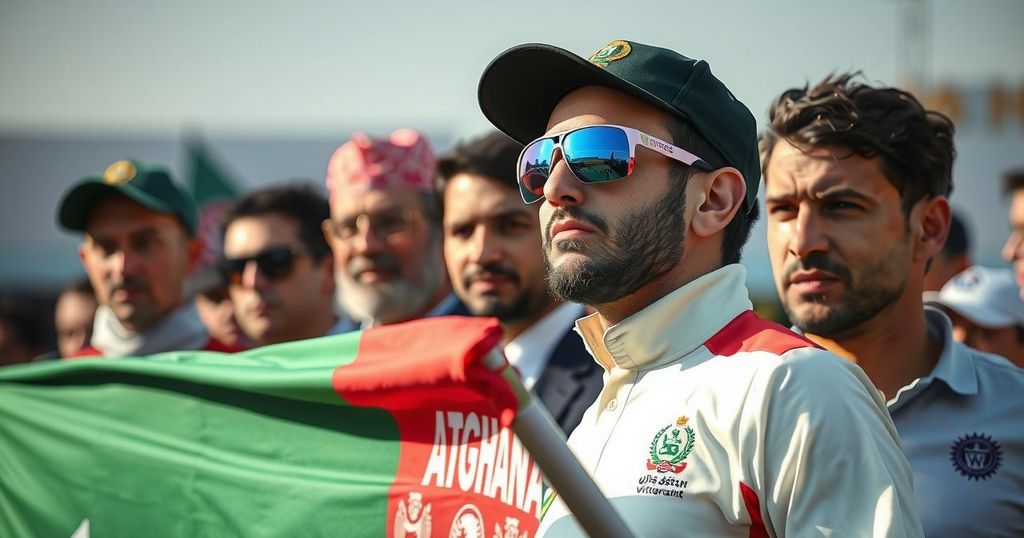Former NI First Minister Baroness Foster and over 160 UK parliamentarians call for England’s cricket team to boycott a match against Afghanistan, in protest against the Taliban’s oppressive policies toward women. This growing movement highlights the intertwined nature of sports and politics and draws attention to the plight of Afghan women and cricketers who are adversely affected by these restrictions.
In light of the ongoing oppression of women under the Taliban regime in Afghanistan, Baroness Foster, the former First Minister of Northern Ireland, has advocated for the England men’s cricket team to boycott an upcoming match against Afghanistan. She joins a coalition of seven MPs and peers from Northern Ireland and over 160 parliamentarians across the UK, condemning the regime’s draconian restrictions on women’s rights. This issue has sparked significant discussion within political circles, raising awareness of the plight of Afghan women cricketers who have been particularly impacted by these restrictions since the Taliban seized power in 2021.
The upcoming match, part of cricket’s Champions Trophy scheduled for February 26, has been labeled a political issue by several Northern Irish politicians. Social Democratic and Labour Party (SDLP) MP Claire Hanna emphasized that the Taliban’s restrictions intertwine sports and politics by hindering women’s ability to participate in sports freely. The England and Wales Cricket Board (ECB), while encouraging a coordinated response, has yet to make a definitive commitment regarding a boycott.
A letter addressed to the ECB from Labour MP Tonia Antoniazzi urges the team to boycott the match to send a strong message against the Taliban’s oppressive actions. The letter highlights the appalling treatment of Afghan women and notes that several members of the Afghan women’s cricket team have fled the country amid this turmoil. The letter has gained notable support, including signatures from former Labour leaders Jeremy Corbyn and Lord Kinnock.
Baroness Foster reiterated her concern for Afghan women, stating, “the actions of the regime in Afghanistan absolutely mark the country out as a rogue nation, especially in relation to their continuing repression of women.” Similarly, Claire Hanna characterized the situation as one of solidarity, urging sports organizations to take a stand against this political oppression. In response, ECB Chief Executive Richard Gould acknowledged the letter and affirmed the organization’s commitment to women’s rights, while advocating for a collective international response to maximize the impact of any actions taken.
The call for the England cricket team to boycott their match against Afghanistan arises from deep concerns regarding human rights violations perpetrated by the Taliban regime, particularly toward women. Following the Taliban’s rise to power in 2021, Afghan women have faced severe restrictions on their rights, including bans on education and participation in sports. This has sparked outrage among UK politicians, leading to a broader movement advocating for international boycotts as a means of expressing solidarity with oppressed individuals in Afghanistan. The issue has gained traction within Parliament, reflecting wider societal concerns about human rights in the region.
The push for an England cricket team boycott against Afghanistan symbolizes a greater outcry against the Taliban’s oppressive policies toward women. There is a strong call for solidarity from various political figures in Northern Ireland, seeking to leverage sports as a platform for human rights advocacy. While the ECB remains cautious about unilateral actions, the collective sentiment from UK parliamentarians underscores the urgency of addressing ongoing humanitarian crises in Afghanistan.
Original Source: www.bbc.com







